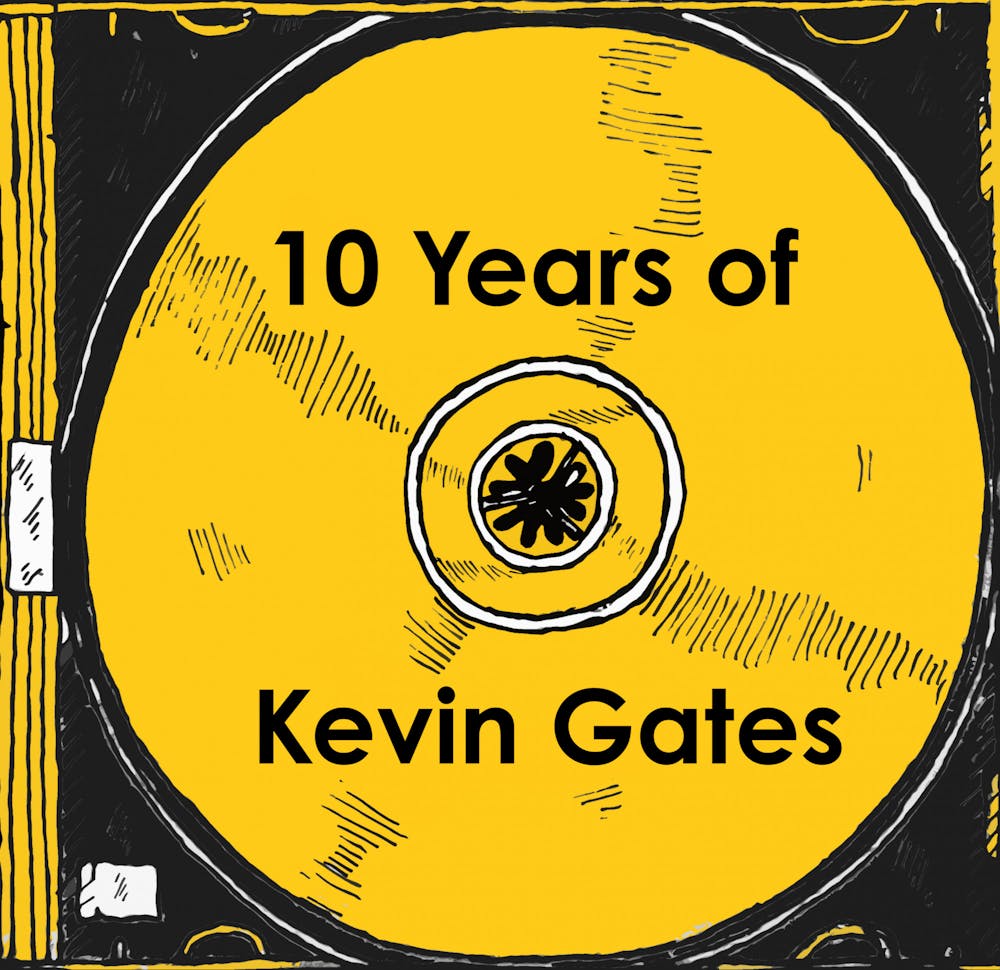Certain artists are consistently cited as leaving the most influential mark on 2010s hip-hop. You have Future and Young Thug's countless clones with their slurred trap talk, YG and Mustard's modern G-funk, and uninspired attempts at Kendrick and Drake's concepts or crossover appeal, respectively. Yet one rapper whose massive, distinct impact remains unacknowledged is Kevin Gates and his breakthrough mixtape, "The Luca Brasi Story."
Between prison stints in the early '10s, the Baton Rouge native found himself stagnating on fellow Louisianans Lil Wayne and Birdman's Young Money Entertainment. While he found a pop hit in 2012's "Satellites," there was little to distinguish his country rap style from contemporaries like Boosie and Webbie, and his projects lacked consequence; a love song like "Satellites" felt disingenuous. With 2013's Luca Brasi Story, however, Gates found his sound and stride with a classic mixtape that would define the sound of hip-hop in the Deep South even 10 years later.
Released in February of 2013 on Bread Winners' Association – Gates' own new imprint – "The Luca Brasi Story," was a breakthrough in its marriage of styles and the realization of his true, complex self on record. Encompassing every style of Louisiana hip-hop and every aspect of his character, "The Luca Brasi Story" does so through a common trope; titled after "The Godfather" character himself, Gates alludes not only to a ruthlessness and warning not to be pushed, but also a fierce loyalty to the game and his family.
The versatility of "The Luca Brasi Story" remains its greatest strength; across 22 tracks (only reaching streaming services recently in celebration of its anniversary), Gates explores a range of sounds, doing them all justice while adding his now-signature emotional spin and Louisiana flavor. In true 2013 fashion, there is an abundance of bombastic trap beats in the vein of "Flockaveli" or Jahlil Beats. Take "Weight" or the first proper track, "Paper Chasers;" while the beats evoke fantastic images of the artists' life outside, Gates' unique drawl and melodies cut through with earnestness. As he raps about coming up hustling, even the greenest listener could find themselves relating to a Don, motivated to go and get it.
Other tracks pay homage to Gates' lineage, such as "Ugly But She Fine," with the legendary Master P and its signature Magnolia bounce. But the wrinkle to "The Luca Brasi Story" that cements its impact is his vulnerability displayed through melody. While rappers have been singing since Lauryn Hill and beyond, few in the trap genre could do it so consistently and adeptly until Kevin Gates. In fact, few trap artists were ever so honest about love, romance and the difficult balance an artist strikes between those and a dangerous lifestyle.
On tracks like "Neon Lights," he stretches his voice to its limits for a raunchy ballad, while "Twilight (War with God)" is a true profession of love where many rappers find themselves too busy posturing as heartless. "Arms of a Stranger" even goes so far as to admit to struggles with anxiety and mental health long before the subject became trendy in hip-hop.
"The Luca Brasi Story's" juggle of outward toughness with vulnerability has penetrated popular hip-hop's zeitgeist today. Just as often as your typical braggadocious gangster track blows up, there are abundant crooned, emotional cuts. Some have called the subgenre "pain music," in which the artist broods over their environmental and romantic traumas to moody, acoustic production.
Superstars such as YoungBoy Never Broke Again, Rod Wave, Yungeen Ace and Rob49 have taken Gates' foundation to new extremes, both musically and commercially, while ushering in a clear, modernized identity for hip-hop in the Deep South. Their openness on once taboo struggles has resonated with countless listeners going through it themselves, showing that mental health is a sign of humanity rather than weakness.
While Gates' most commercially successful work came later with 2015's Islah and he is most relevant these days for his meme-worthy interviews, The Luca Brasi Story is core to the South's hip-hop canon: both a great record in its own right and essential to the genre's dominant sound going forward.






